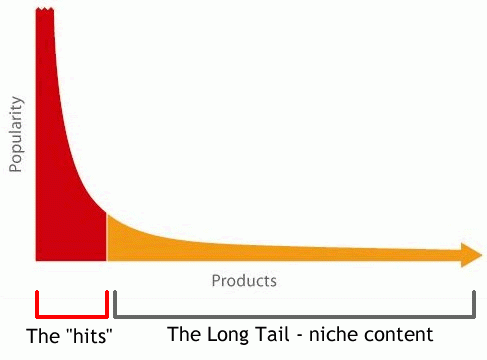IT Bloggers, Deprecate Your Posts to Stop Spreading Legacy
Do you blog about IT? Do you blog for more than a year? There is a big chance you're spreading already outdated information.
The problem is, your readers see that as the best practise... did you know the Earth is flat?
How to prevent that and keep your content quality high?
The Long-Tail Effect...
...that's spreads fake news.
If you answered "yes" twice to the perex, your posts are probably under long-tail effect.

They're frequently shared in the start, but the older they're, their total popularity rises. You might ask, what's the problem with that?
Let's say you want to know how to use parameters in Symfony controller. What will you do? Google to StackOverflow:

Click the first answer and copy-paste the solution:

We know it's outdated for years, but reader has no idea. He or she googled "parameter Symfony Controller" and just go with the most voted solution. I'd do it too.
The second answer for Symfony 3+ that was released in 2016 has much less attention:

When the long-tail effect kicks in for this answer, it will be outdated. There will be also new answer for Symfony 6 with only 13 votes that no-one will read.
Legacy is spreading, Dark Legacy Lord is happy. That's why Don't Read books.
Old !== Outdated
If time was the only issue, you could just limit Google results to last year. But it's not that easy.
The old post doesn't mean outdated. One example for all - Matthias Noback, my favorite PHP writer, wrote about decoupled controllers as services in 2014. It's still valid and we're just almost getting there now.
How to Make it Right?
How can I even write a post about PHP when I know they'll be useless in a few years? Well, you can tests your posts to automate this, but it takes time and setup.
Right now, I feel it's our responsibility as writers to inform our readers what is good and tasty to eat and what id rotten old trash.
Inform people clearly in the start of the page.


It seems like a small detail, but it really helps people who are new in the fields to navigate differentiate between useless and good content.
When is the Best Time? Now!
It's not an urgent call, December is really the best month to do this.
Why? A new Symfony and PHP is released - Symfony 4.2 is out now (this blogs is running on it already) and PHP 7.3 is around corner.
It can be as easy as upgrade composer.json:
{
"require": {
- "symfony/symfony": "^4.1"
+ "symfony/symfony": "^4.2"
}
}
Practical Example
"Code, not words!" I hear you.
I'm working on such PR right now for this blog - see it on Github.
What Changes are Included?
- Symfony
4.1→ 4.2 - deprecate Statie posts → official documentation Statie.org
- deprecate Object Calisthenics post → Cognitive Complexity instead
- Nette\CodingStandard post -
0.5→ 2.0 - deprecate How to Require Minimal Code Coverage for Github Pull-Requests with Coveralls - there is no added value
- news in Symplify 2, 3 and 4 + reflect deprecations and removed classes
- and few more...
Notice, the depreciation is not removing. I always try suggests a link to go or at least keywords to Google or provide "why" you should not do that at all. That way people know where to go, instead of just bumping to a wall.
Step-Up and Help Spreading Up-To-Date Information
It's ok to make mistake and be wrong. It's also normal to change your opinion based on a change in the worlds - that's what happened to me with Why Doctrine is Dying post.
When I wrote this post, the situation was really frustrating, no vision, no new features, and passive community. That's change during the following year and even though I didn't use Doctrine, it felt wrong having this post still up, even though it was not in sync with reality.

That's why I deprecated original post and released a new one 6 Reasons Why Doctrine is Alive and Kicking.
Happy upgrading and thank you for doing this for PHP community!